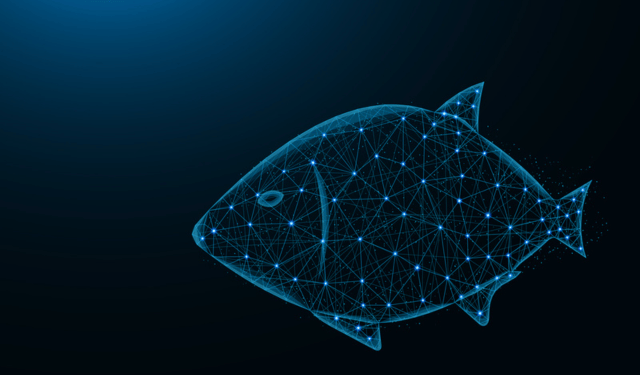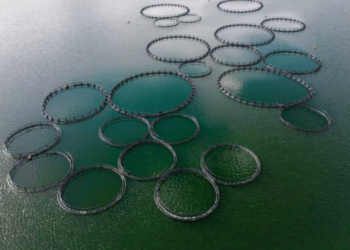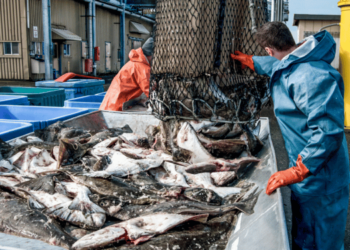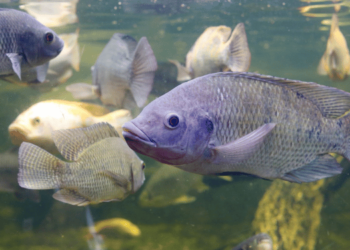Artificial intelligence in the fish industry revolution – Artificial intelligence (AI) is revolutionising the fish industry, offering innovative solutions that improve the quality, efficiency and sustainability of fish processing. Thanks to advanced machine learning and computer vision systems, AI is transforming every stage of processing, from quality control to automatic filleting, offering significant benefits for both companies and consumers.
One of the most relevant applications of artificial intelligence in the fish industry is the automation of production processes. AI-enabled machines can identify the characteristics of each fish in real time, adapting processing parameters to ensure precise cuts and minimise waste. For example, filleting robots, equipped with computer vision systems, analyse the size and shape of the fish, making customised cuts that maximise yield. This not only improves efficiency, but also reduces dimensional differences in fillets, ensuring a uniform, high-quality product.
Another significant contribution of AI is in quality control.
Advanced image analysis techniques allow defects, contamination or alterations in the product to be detected quickly and non-invasively. This approach improves food safety, a crucial aspect for international markets that are increasingly focused on traceability and regulatory compliance. In addition, AI integrated with blockchain technology ensures transparency throughout the supply chain, recording every step from capture to distribution in an immutable system accessible in real time.
Packaging is also benefiting from artificial intelligence. Automated systems can package fish in a modified atmosphere (MAP) with extreme precision, extending the shelf-life of products without compromising freshness. This technology is particularly useful for exports, where maintaining quality during transport is crucial.
The introduction of AI also relates to energy efficiency and sustainability. Intelligent machinery optimises the use of resources, reducing water and energy consumption. Moreover, with predictive analytics, companies can predict market demand and plan production accordingly, reducing waste and increasing profitability.
The fishing industry is only at the beginning of this technological transformation. Artificial intelligence is not just an innovation, but a necessity for companies that want to remain competitive in an increasingly globalised and sustainability-conscious market. Investing in AI means not only optimising internal processes, but also meeting the needs of modern consumers, who demand high quality, safe and environmentally friendly products.
Artificial intelligence in the fish industry revolution









